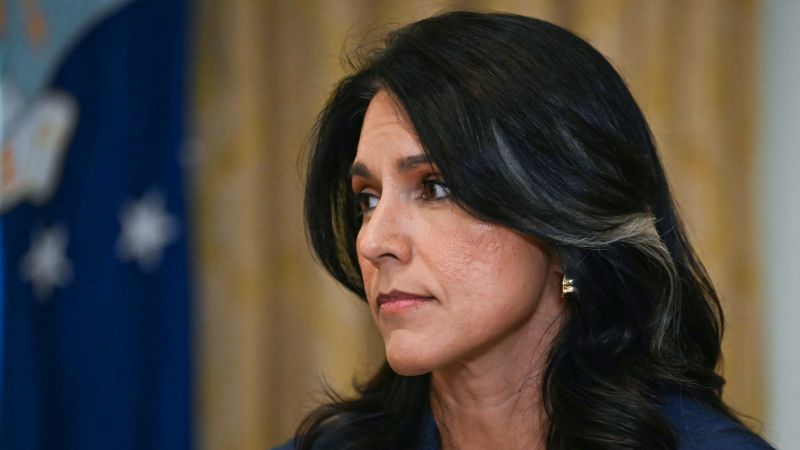On Wednesday, Tulsi Gabbard, serving as the Director of National Intelligence (DNI), unveiled a substantial reorganization plan for the United States’ foremost intelligence agency, the Office of the Director of National Intelligence (ODNI). This reform initiative aims to reduce the agency’s workforce by nearly 50%, thereby achieving an estimated annual savings of $700 million for taxpayers. Gabbard’s ambitious restructuring marks a significant shift in the operational dynamics of the agency, highlighting her commitment to overhaul existing practices for what she perceives as a more streamlined efficiency.
Previously, Gabbard has already initiated workforce reductions, managing to trim the ODNI’s staff by approximately 30%, equating to more than 500 employees, according to a detailed fact sheet released by her office. This initial cut sets the stage for her proposed changes, which are all encapsulated under the initiative dubbed “ODNI 2.0.” Gabbard has explicitly stated that her plan intends to eliminate redundancy and alleged politicization within specific subagencies and offices that are part of the ODNI structure.
Among the specific offices targeted for closure are the Foreign Malign Influence Center, responsible for monitoring foreign efforts to sway public opinion in the U.S., and the National Counterproliferation and Biosecurity Center, which focuses on the proliferation of chemical, biological, and nuclear weapons. Gabbard’s strategy includes disbanding these entities and reallocating some of their core functions and personnel to other divisions within the agency, thereby attempting to enhance operational efficiency.
In a public statement, Gabbard expressed her concerns regarding the growth and inefficiency of the ODNI over the past two decades. She described the agency as being plagued by abuse of power, unauthorized intelligence leaks, and the politicization of intelligence operations. Gabbard stressed the importance of restoring trust between the intelligence community and the American populace, which, in her view, has been significantly eroded. Her rationale is that by refocusing on the agency’s core mission of delivering unbiased and timely intelligence, accountability for misconduct becomes paramount in rebuilding that trust.
Among the specific groups Gabbard plans to dissolve is the Strategic Futures Group, which was tasked with creating long-term analyses to aid policymakers. She alleges that this group has been misused by elements within what she refers to as the “deep state” to promote a partisan agenda, undermining its impartial analytical goals. A notable point of contention resides in an annual report produced by this group, titled the Global Trends Report, which Gabbard’s office claims violates professional analysis standards to push political narratives that do not align with the current administration’s national security objectives.
Despite these bold assertions, the factsheet accompanying Gabbard’s announcement did not substantiate her claims with concrete evidence. There have been previous accusations concerning Gabbard and her team allegedly exerting pressure on intelligence analysts to align their findings with predetermined political stances, a practice that raises ethical questions about the independence of intelligence analysis.
As her proposed restructuring rolls out, the degree to which these changes have already begun remains ambiguous. Gabbard has communicated some of her reform ideas through a three-page memo sent to Congress, indicating plans for modernization, streamlining, or phasing out specific offices in the upcoming Fiscal Year 2026.
The reception of Gabbard’s announcement has been mixed. Senator Mark Warner, the leading Democrat on the Senate Intelligence Committee, acknowledged a bipartisan consensus concerning the necessity of reform within the ODNI but expressed reservations about Gabbard’s history of politicizing intelligence matters. Conversely, Senator Tom Cotton, the top Republican on the panel, hailed the restructuring efforts as a crucial step toward restoring ODNI to an appropriate size and mission, underscoring the partisan divide on the implications of Gabbard’s plans.
In summary, Tulsi Gabbard’s sweeping changes to the ODNI signal a pivotal moment in U.S. intelligence operations, aimed at reducing bureaucratic inefficiencies while navigating fierce political scrutiny and accountability. The road ahead in implementing these reforms will likely prove complex, invoking questions of ethics, practicality, and partisanship in an already charged political landscape.










